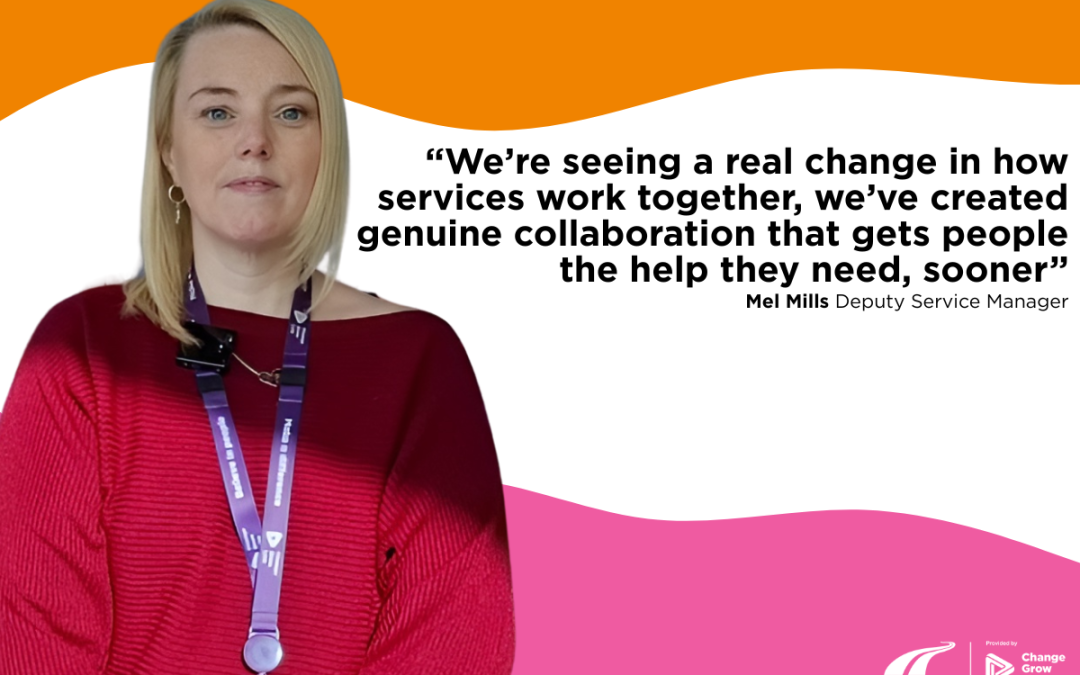At Wirral Ways, joint working between criminal justice agencies and local recovery services is helping people move away from crime and into treatment, support, and recovery.
Thanks to targeted funding from the national ADDER (Addiction, Diversion, Disruption, Enforcement and Recovery) programme, Wirral Ways has been working closely with Merseyside Police, probation teams, and local partners to offer a new kind of support — one that focuses not just on arrest, but on understanding people’s vulnerabilities and helping them access help.
From Policing to Prevention
Through stronger partnerships with local police, a culture shift is taking place. Instead of viewing people who use drugs or alcohol solely through a criminal lens, there’s now a real focus on health, safety, and prevention.
“We’re seeing a real change in how services work together,” says Melanie Mills, Deputy Service Manager at Wirral Ways. “From meet-and-greet events with frontline officers to joint training and shared information, we’ve created genuine collaboration that gets people the help they need, sooner.”
This includes over 50 monthly referrals from Merseyside Police through the Vulnerable Person Referral Form (VPRF), ensuring people affected by drugs or alcohol – whether victims or offenders – are safely linked into support services.
Supporting People at Every Stage
The approach doesn’t stop at the point of arrest. Wirral Ways also works closely with the County Lines team to reach people at risk of exploitation and offers outreach support in hostels and community settings. Two electric cars are used for prison gate pickups, helping individuals continue their recovery journey the moment they’re released. Continuity of care from prison to community has jumped from 33.6% to 79% in just over three years.
Probation teams and Wirral Ways staff work side-by-side to support people through community sentences. A dedicated probation administrator tracks referrals, follows up progress, and makes sure no one falls through the cracks.
People under probation supervision are offered:
- Group sessions and one-to-one recovery support
- Health checks and gym access, including male and female-only sessions
- Drop-in sessions at Tomorrow’s Women Wirral for female clients
- Naloxone and Nitazene test strip distribution
- Extended brief interventions for non-opiate users
This joined-up way of working ensures that people can move between systems with consistent support — whether they’re in prison, on probation, or engaging voluntarily.
Real Results, Real Impact
The results speak for themselves:
- Continuity of care after prison release has more than doubled
- Successful treatment completions for criminal justice clients in Wirral are 20.4% – significantly higher than the national average for similar services
- Probation referrals into treatment have significantly increased, with a growing focus on people with alcohol, cannabis, and cocaine issues
What’s more, a recent data review of probation caseloads helped identify gaps and unmet needs, especially among under-25s and those using drugs to self-medicate for mental health challenges.
Building for the Future
While the journey hasn’t been without its challenges – from recruitment delays to information-sharing hurdles – the passion of the teams involved has been key to driving progress.
“We’ve learned that having the right people in the right roles makes all the difference,” says Melanie. “When people care, they go the extra mile. That’s what makes this work.”
With new opportunities on the horizon, including expanding the model to other parts of Merseyside, Wirral Ways continues to show how joined-up working and a people-first approach can change lives.

